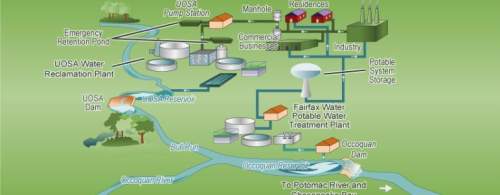[from the u. s. government printing office]

Mc) [june 25, 2013: senate hearing 113-70]
[from the u. s. government printing office]
[subcommittee on energy of the committee on energy and natural resources]
statement of alex laskey, president and founder of opower
my name is alex laskey. i'm the president and founder of opower. we are the world's leading provider of energy efficiency software for the utility industry.
my friend, dan yates, and i started the company 6 years ago because we thought that americans deserved better than a bill that was basically impossible to understand…ordinary homeowners had a right to know, more about the energy they use and the energy they waste in their own homes…
we're based just here in arlington, virginia. we're now 400 employees; two of us six years ago. we're in seven countries with serving 91 utilities in 30 states including minnesota and idaho, not yet vermont and seven countries.
today, we've save ordinary families more than $300 million on their electric bills…this year alone, in the next 12 months, we'll generate another two terrawatt hours in energy savings. two terrawatt hours, that's more than enough energy to power every home in st. paul and cincinnati combined. it's every home in vermont uses less, in total, uses less than 2 terrawatt hours a year. it's roughly a third the size the state of idaho. put in another context, the solar industry last year in this country produced 4 terrawatt hours of electricity. we're producing two. the hoover dam produces just about two terrawatt hours a year in energy savings, in energy.
…57 percent of the energy in our economy is flat out wasted. i don't know about you, but i wouldn't tolerate having 57 percent of the coffee i pour into my coffee mug every morning fall out the other side of it….but we tolerate somehow 57 percent of the energy entering our economy being lost to things like heat, leakage, noise. this doesn't even account for the energy that's lost and wasted in homes when lights are left… on in unoccupied homes. we've estimated that 20 percent of the energy that's consumed in homes is wasted on energy that does not contribute to lifestyle but does contribute to climate change. it's $40 billion a year just on behavioral waste.
so this is an urgent problem that we ought to do something about. we rank ninth of the twelfth industrialized countries in terms of energy productivity… we rank behind china. this is costing us $130 billion a year. that's $1,000 a household.
so the question is what can we do to eliminate waste and make our economy more productive?
…regulation hasn't changed much since thomas edison. rate utilities are still rewarded when their customers waste energy. they ought to be rewarded for their customers save it.
thomas edison may not have envisioned a world in which we incentivize utilities to customers use less power, but it's common sense. because people use less energy costs a lot less than building new power plants and transmission lines.
read this paragraph from the text:
today, we've save ordinary families more than $300 million on their electric bills…this year alone, in the next 12 months, we'll generate another two terrawatt hours in energy savings. two terrawatt hours, that's more than enough energy to power every home in st. paul and cincinnati combined. it's every home in vermont uses less, in total, uses less than 2 terrawatt hours a year. it's roughly a third the size the state of idaho. put in another context, the solar industry last year in this country produced 4 terrawatt hours of electricity. we're producing two. the hoover dam produces just about two terrawatt hours a year in energy savings, in energy.
which of these rhetorical devices is mainly used throughout this text?
a)ethos
b) logos
c) pathos
d) simile

Answers: 1
Another question on English

English, 21.06.2019 18:10
Read the sentence: though margo moved as slowly as a snail in the morning, she somehow ended up being the shining star at the corporations breakfast meeting. which phrase from the sentence is an example of the authors use of simile? a) being the shining star b) somehow ended up c)the corporations breakfast meeting d)moved as slowly as a snail
Answers: 3

English, 21.06.2019 22:50
Write a minimum 150-word response in which you explain how hughes uses poetic devices such as alliteration, assonance, consonance, and enjambment to reveal his theme in "theme for english b."
Answers: 1

English, 22.06.2019 04:20
Each pair of sentences can be combined to create one compound sentence. determine which choice best combines them. refinishing furniture is a creative hobby. not everyone loves to scour garage sales to find old items. going to flea markets can you to notice unique qualities in used items. beauty can be found where you least expect it. specialized equipment can make the refinishing process easier. painting the furniture can be creative with the right tools. some people like refinishing old furniture. others prefer buying new items.
Answers: 3

English, 22.06.2019 05:20
Why did the author of "how to jump-start a car battery" choose to use this image?
Answers: 1
You know the right answer?
Mc) [june 25, 2013: senate hearing 113-70]
[from the u. s. government printing office]
[from the u. s. government printing office]
Questions










Computers and Technology, 20.01.2020 17:31


Biology, 20.01.2020 17:31

Computers and Technology, 20.01.2020 17:31





Computers and Technology, 20.01.2020 17:31





